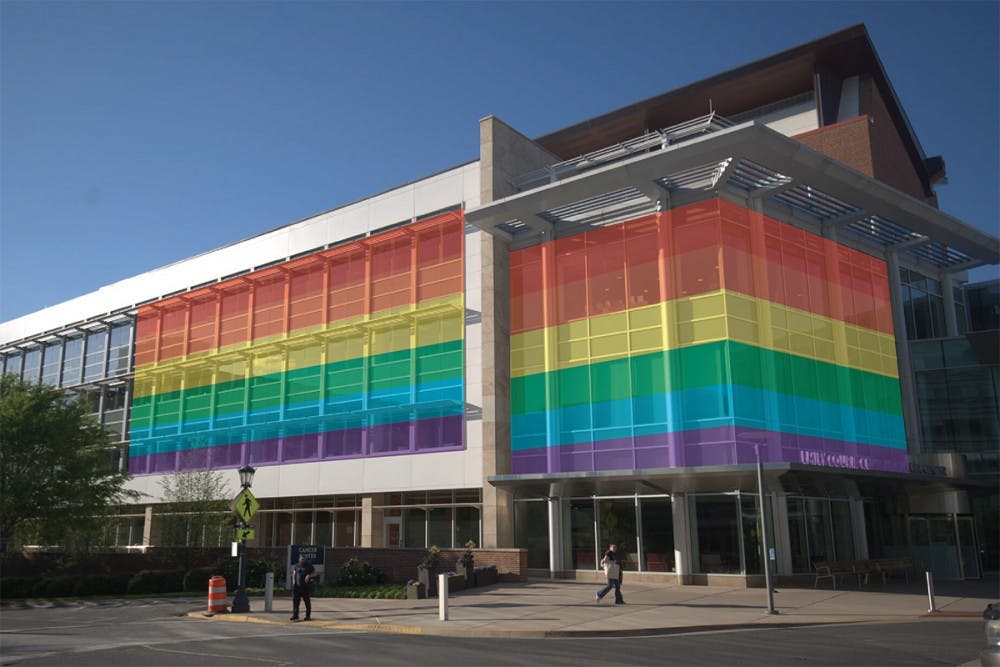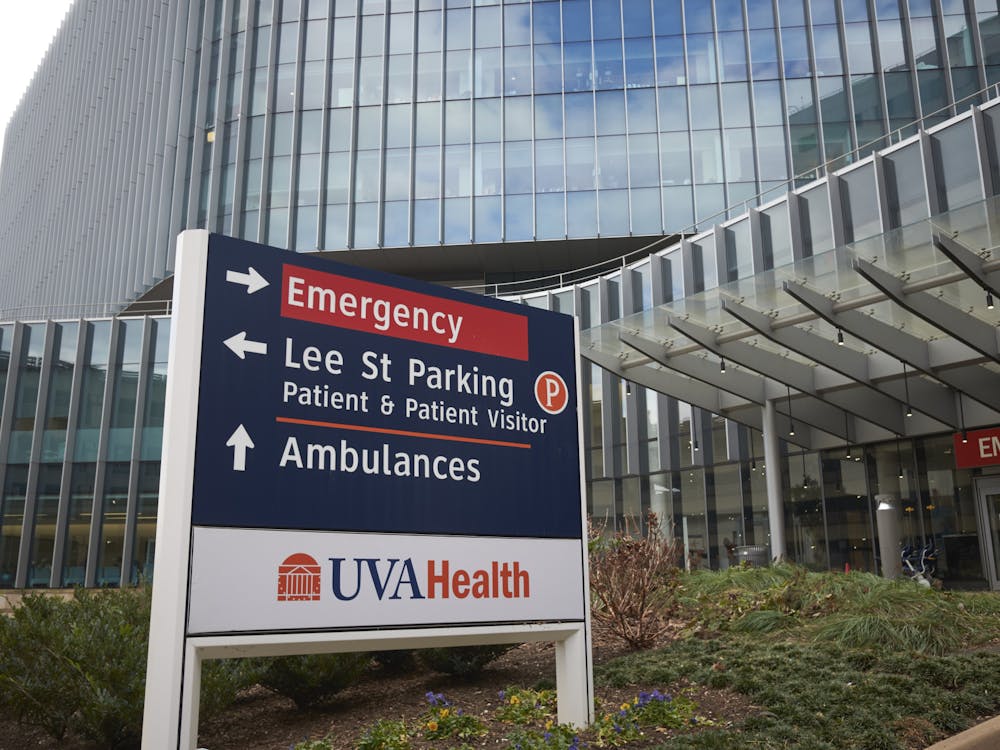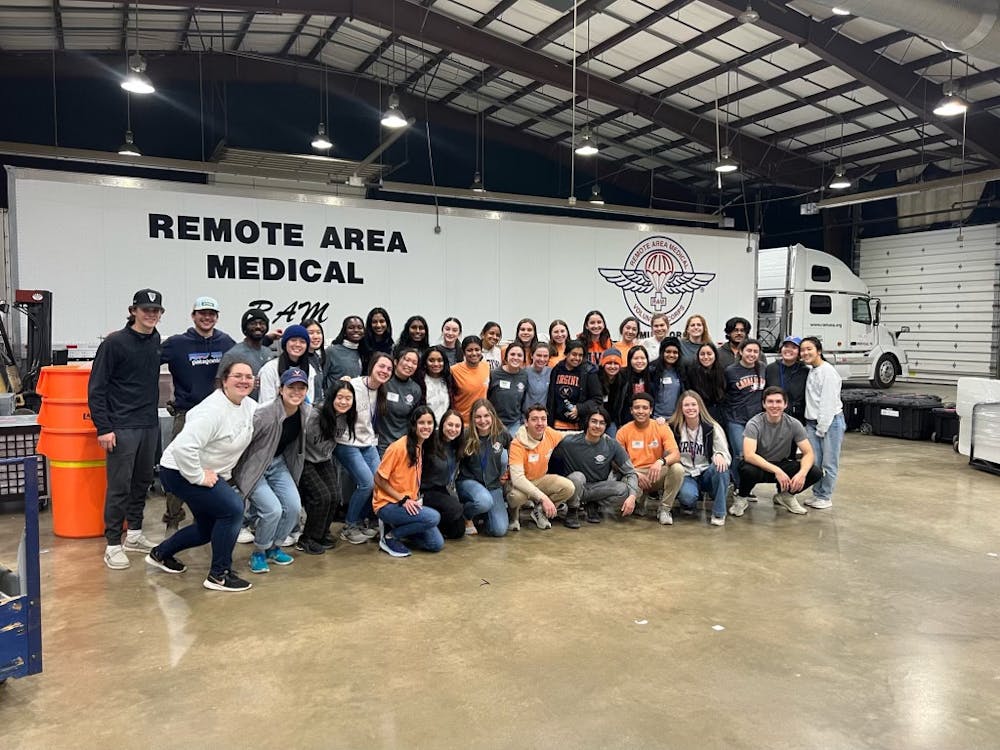The 2018 LGBTQ+ Health Care Symposium organized by University faculty seeks to advocate for inclusion and increase understanding of the diversity of LGBTQ+ identities. The symposium will be held May 10 at the Boar’s Head Inn and invites health care professionals, administration and public health officials to discuss recurring health care issues facing the population.
The symposium will promote inclusivity in health care practices and increase awareness of the various issues members of the LGBTQ+ community face. In particular, visiting faculty as well as those from the University’s School of Medicine and School of Nursing will teach attendees about terminology referencing differences in biological sex, sexual orientation, gender identity and gender expression.
The planning committee, comprised of faculty from the School of Nursing, Department of Psychology and Department of Medicine hope to discuss language regarding LGBTQ+ communities with staff members, patients and physicians — allowing reflection on personal ideas and stereotypes associated with people who are gay, lesbian, bisexual, transgender, queer or allied.
Alongside local speakers and organizers involved in the symposium, a few notable faculty will visit to contribute to the extended dialogue. Tari Hanneman, a representative from the Human Rights Campaign — a civil rights organization working to achieve equality for the LGBTQ+ population — will speak about the Healthcare Equality Index, which ranks medical facilities based on policies regarding inclusivity.
Additionally, Nursing Prof. Kimberly Acquaviva from George Washington University, will visit to speak about transforming professional practices to promote LGBTQ+ inclusive care. Visiting Prof. of Nursing Tommy Dickinson from King’s College London, will also be speaking about the future of the LGBTQ+ community.
Kenneth White, associate dean for Strategic Partnerships & Innovation at the School of Nursing, played an integral role in its organization and will direct the symposium. White spoke about the importance of increasing awareness of healthcare issues in the LGBTQ+ community and the agenda for the day-long symposium.
“Our target audience are clinicians and we hope to have it be an open forum about best practices for organizational response and also for individual health care providers,” White said. “The morning half will be focused on what organizational policies, procedures and systems need to be in place to be inclusive of this population. The second half of the day will be more focused on individual health care needs and what some of the specific healthcare issues confront people of this community.”
The symposium hopes to tackle the discrimination and stigmatization that the LGBTQ+ community faces. According to Dr. Catherine Casey, assistant professor of family medicine, medical staff often make assumptions about the relationship history of LGBTQ+ patients, which can lead to them receiving improper tests or failing to receive important ones. In particular, transgender adults and youth can face lots of stress and trauma as a result of insensitivity and trauma, making mental illnesses like depression or anxiety worse.
White echoed Casey’s sentiment, speaking about the specific issues transgender people face within the healthcare system.
“I think the transgender population faces perhaps a lot of challenges with stereotypes and people who don’t understand pre- and post-transition,” White said. “They feel disrespected because the right pronouns aren’t being used. I think others are may feel put down, made fun of and snickered at. And there’s a much higher rate of depression and suicide, especially among transgender people because they feel like they’re abandoned by the healthcare profession.”
Casey said in an email that the prevalence of discrimination in the field of healthcare and the recent policy change may affect members of the LGBTQ+ community.
“I found the recent push by [President Donald Trump] to allow discrimination by health care providers under the guise of religious freedom especially ironic,” Casey said. “If 20% of transgender patients have been refused care by doctors, and another 20% have faced discrimination in the healthcare setting already, the real problem is clear. Discrimination is rampant.”
As of April 6, the University opened a Transgender Health Clinic where providers specializing in endocrinology and general pediatrics are available to help patients in a positive, affirming environment. The University also offers free resources, brochures and guidance on issues like mental health and sexuality and materials, through the Teen and Young Adult Health Center for people ages 11-26 and Elson Student Health Center for those ages 12-24.
The 2018 Healthcare Equality Index uses five measures — “non-discrimination and staff training, patient services and support, employee benefits and policies, patient and community engagement and responsible citizenship” to rate health care facilities. The HEI seeks to improve LGBTQ+ inclusive care in hospitals around the nation. This year, the Medical Center scored 95 out of 100 on the HEI.
According to White, physicians should not only be respectful of people in the LGBTQ+ community, but also consider the individual needs of patients.
“The other thing is to ask the question, what do I need to know about you to give you the best care possible, what do I need to know about you to be the best friend possible, or what are values and identities that you hold dear that I need to respect,” White said.
Casey echoed White, saying it is important to ensure the inclusion of people in the LGBTQ+ community as a significant and vital component of the healthcare system.
“Rather than think of the LGBTQ+ community as being a separate community … we can be considerate of the LGBTQ+ people in our own communities – and they’re everywhere,” Casey said. “We can think about our choice of words – what we say and what we don’t. We can be conscientious about including them, and speaking up when we notice unfairness in the system.”





